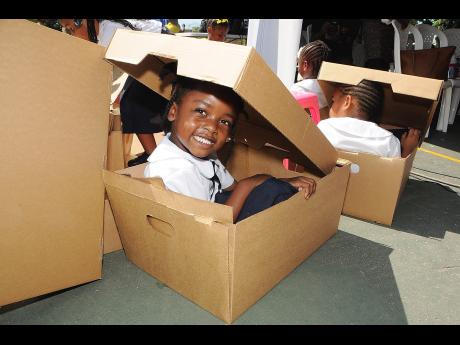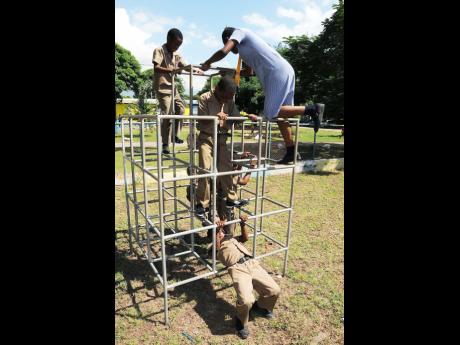The right to romp - Experts say Jamaican children need more places and times to play
Although Jamaica signed the UN Treaty which guarantees the right of every child to play, there are concerns that a dearth of safe play spaces, particularly in dense urban communities, is preventing Jamaican children from fully enjoying this right.
"I think we are in a situation where we are not sending our children outside to play because we don't have enough play spaces to take them to," said education specialist at UNICEF Jamaica, Dr Rebecca Tortello.
"What we have is far too many of our children who are locked inside or kept inside. They are watching TV, they are looking at a screen, or they can't go outside to play because it may not be safe in their neighbourhood," Tortello told The Sunday Gleaner.
She noted that governments around the world are realising the importance of play and in London, for example, officials have started to block some roads and turn them into play area for children.
"If we had cities that were built in a more child-friendly way, the children would have more opportunities to play," she said.
BRINGING AWARENESS
Play Jamaica Day was launched last Tuesday in an effort to bring awareness of the importance of play and to encourage parents to set time aside to play with their children. The day will be observed on November 20.
"It is a right of all children and we need to facilitate it more, in school and out of school," declared Tortello.
The Early Childhood Commission (ECC) insists on a play-based curriculum for early childhood institutions, but with several schools not yet certified, there are no guarantees that all of the institutions are adhering to this policy.
Educator and commissioner at the ECC, Rachel McDonald, believes allowing children to play is important for getting them "21st century ready".
According to McDonald, playing helps children to develop language and literacy skills and helps them to exercise their social, emotional and cognitive skills.
"The reality is that it is only when we deliberately make time for play that we start to see the benefits of play," said McDonald. "And I am not talking play at break time," she added.
McDonald argued that traditional games such as 'one two three red light', 'bend down stucky', ring games, Chinese skip, hula hoop and 'I spy' are great for children to play.
Minister of State in the Ministry of Culture, Gender, Entertainment and Sport Alando Terrelonge would like to see parents go back to basics and allow their children to be creative while playing.
He recalls building cars and trucks from boxes and the caps from drink bottles when he was growing up in Grants Pen, St Andrew.
"Families, don't even concern yourselves when you see like some of these fancy things on the TV and you know that bwoy, I can't afford that for my children. You don't need the $50,000 toy or the $20,000, $10,000 toys. The best toys are the ones that children can make for themselves, because it fosters creativity," said Terrelonge.
He added that care should be taken to include those children who are physically challenged in playtime.
Convention on the Rights of the Child: Article 31 (Leisure, play and culture):
1. States Parties recognise the right of the child to rest and leisure, to engage in play and recreational activities appropriate to the age of the child and to participate freely in cultural life and the arts.
2. States Parties shall respect and promote the right of the child to participate fully in cultural and artistic life and shall encourage the provision of appropriate and equal opportunities for cultural, artistic, recreational and leisure activity.


